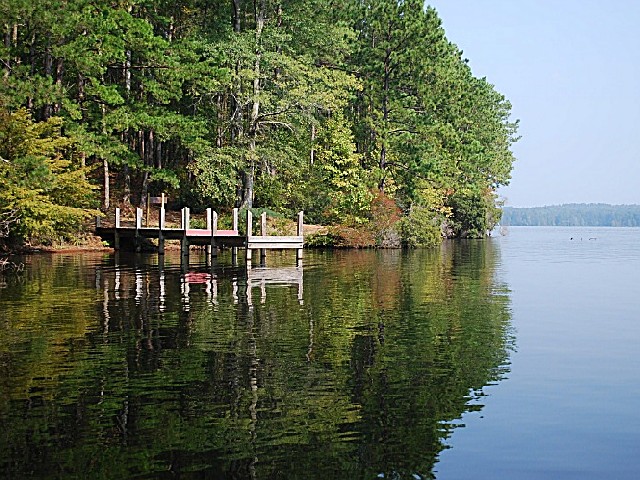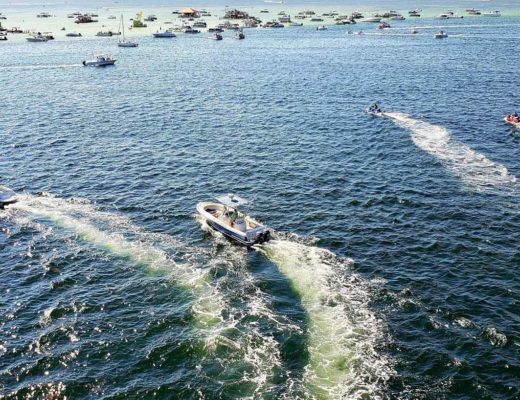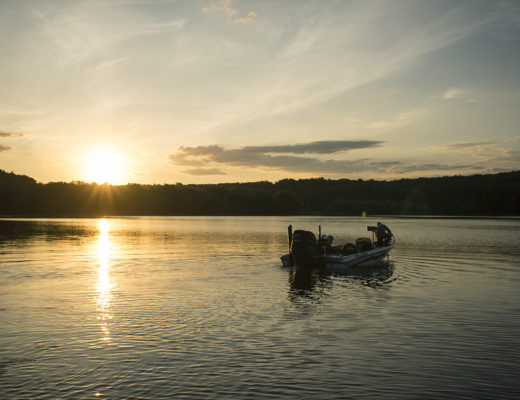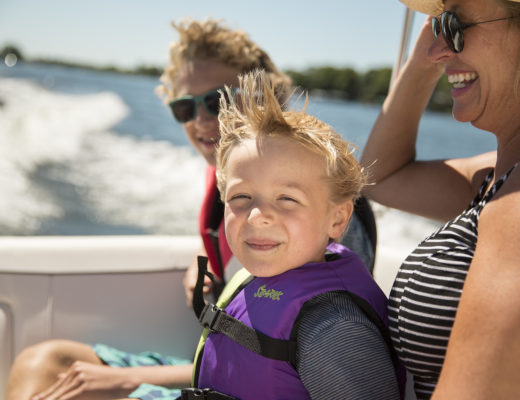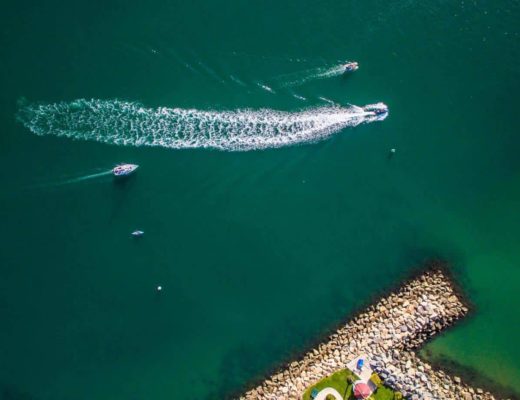Who needs a Boater Education ID Card in Louisiana?
Louisiana law requires all boaters born after January 1, 1984, must complete a boating education course and carry proof of completion to operate a motorboat in excess of 10 horsepower. The person may operate the boat if accompanied by someone over 18 years of age who if required has completed the course. The minimum age for Boater Education Certification in Louisiana is 10 years old. Youth younger than 10 years old may take the course, but they are not eligible to be certified and will have to retake the course to obtain certification when they reach 10 years of age or older. A person who is licensed by the USCG as a captain to operate a vessel shall be exempt from the provisions.
Operating a Personal Watercraft
Persons born after January 1, 1984, may not operate a motorboat or PWC powered by a motor in excess of 10 horsepower unless he or she has successfully completed a boating safety course approved by the National Association of State Boating Law Administrators. The person may operate a motorboat if accompanied by someone over 18 years of age who if required has completed the course (this provision DOES NOT apply to PWCs). These persons must be in possession of evidence of completion of the approved course whenever operating such a vessel.
Louisiana Life Jacket Requirements
Louisiana law requires that all children 16 years of age and younger wear a U.S. Coast Guard-approved PFD while underway on a vessel less than 26 feet long. The PFD must be fastened and of the proper size for the child.
All persons on board a motorboat less than 16 feet which is being propelled by a hand tiller outboard motor are required to wear a U.S. Coast Guard-approved Type I, II, III or V PFD while the motorboat is underway.
A motorboat less than 26 feet with a hand tiller outboard motor in excess of 10 horsepower designed to have or having an engine cut-off switch must have the engine cut-off switch link attacked to the operator, the operator’s clothing, or the operator’s PFD, if worn, while the motor is running and the vessel is underway.
Boat Registration Requirements
All boats with motors, including electric trolling motors, operating on the waters of the state, must be registered and numbered. Boat registration applications are available from most boat dealerships, and on the LDWF web site, from any of the Wildlife and Fisheries District Offices or from Wildlife and Fisheries, Boat Registration, P.O. Box 14796, Baton Rouge, LA 70898, phone number 225-765-2898.
After completing the application, mail it with your check or money order to the above address and allow 6 to 8 weeks for processing.
Upon receipt of your application and all other required documentation, the Department will issue you a certificate of registration, stating the number assigned to the boat, two decals, and an expiration date of three years from the date of issuance.
Your boat registration certificate must be on board the vessel at all times. Keep it in some type of waterproof container in a safe place where it can be readily found by the owner.
Boat Registration Number and Decal Placement
The number assigned and no other shall be painted on or attached to each side of the forward half of the vessel’s hull. The letters and numbers must be of a plain block design, not less than three inches high, and of a color that will contrast with the hull, light numbers on a dark hull or vice versa, and placed so that it is clearly visible and legible. The number and letters must be vertical and plain. Border, outline, or shadowing, must be disregarded in determining height or color contrast. Between the prefix, the numerals, and the suffix, there must be a hyphen or space equal to the width of a number, except 1 or letter, except I. Examples of correct number display are: LA-4002-CS OR LA 4002 GS.
Decals received from the Department must be attached to each side of the vessel’s bow within six inches of the numbers.
Louisiana Laws for Negligent or Reckless Boat Operation
Operation of any watercraft in a careless or heedless manner so as to be grossly indifferent to the person or property of other persons or at a rate of speed greater than will permit him in the exercise of reasonable care to bring the watercraft to a stop within the assured clear distance ahead shall be guilty of the crime of careless operation.
Operation of any watercraft in such a manner so as to endanger the life or limb or damage the property of any person shall be guilty of the crime of reckless operation.
The Rules for the Road for Vessels
A. The following regulations shall dictate the operation of vessels upon the waters of the state and shall set forth a standard of operation. In construing and complying with these rules, due regard shall be had to all dangers of navigation and collision and to any special circumstances, including the limitations of the vessels involved, which may make a departure from the Rules necessary to avoid immediate danger.
B. Any violation of the Rules of the Road as referred to in this section shall be prima-facie evidence of careless or reckless operation.
C. Boating accidents caused by deviation from the Rules of the Road shall be documented as such in accident reports.
D. The Rules of the Road for vessels upon the waters in the state shall be as follows:
- Vessels passing head-on shall each keep to their respective right.
- A vessel overtaking another vessel may do so on either side, but must grant the right-of-way to the vessel being overtaken.
- When vessels are passing at right angles, the vessel on the left will yield right-of-way to vessel on the right.
- Motorboats shall yield right-of-way to non-motor powered boats except as follows:
a. When being overtaken by non-powered vessels.
b. For deep draft vessels that have to remain in narrow channels.
c. When vessel is towing another vessel. - Motorboats must maintain a direct course when passing sailboats.
- A vessel approaching a landing dock or pier shall yield the right-of-way to any departing vessel.
- A vessel departing shoreline or tributary shall yield right-of-way to through traffic and vessels approaching shoreline or tributary.
- Vessels will not abruptly change course without first determining that it can be safely done without risk of collision with another vessel.
- If an operator fails to fully comprehend the course of an approaching vessel he must slow down immediately to a speed barely sufficient for steerageway until the other vessel has passed.
- Vessels yielding right-of-way shall reduce speed, stop, reverse, or alter course to avoid collision. Vessel with right-of-way shall hold course and speed. If there is danger of collision, all vessels will slow down, stop, or reverse until danger is averted.
- Vessels will issue warning signals in fog or weather conditions that restrict visibility.
- No mechanically propelled vessel shall be operated so as to traverse a course around any other vessel underway or any person swimming.
- In a narrow channel, vessels will keep to the right of mid-channel.
- Vessels approaching or passing another vessel shall be operated in such manner and at such a rate of speed as will not create a hazardous wash or wake.
- No vessel shall obstruct or interfere with take-off, landing, or taxiing of aircraft.
- All vessels shall be operated at reasonable speeds for given conditions and situations and must be under the complete control of the operator at all times.
- No person shall, under any circumstances, operate a vessel in excess of an established speed or wake zone.
- No vessel or person shall obstruct or block a navigation channel, entrance to channel, mooring slip, landing dock, launching ramp, pier or tributary.
- Vessels shall keep at least 100 feet clearance of displayed diver’s flag.
- Operator shall maintain a proper lookout.
Boating and Alcohol
An operator found to have a BAC of 0.08 percent or more is deemed to be intoxicated and punished under Louisiana law. Operation under the influence of controlled substances is also punished.
Punishments are enhanced where the person has prior convictions. Penalties may include fines, jail time, and a suspended driver’s license.
Louisiana Boat Accident Reporting Requirements
An operator involved in a boating crash, collision or other casualty must stop his or her vessel immediately at the scene of the incident. The operator must also render assistance to injured persons or attempt to minimize any danger caused by the incident unless doing so would create serious danger to his own vessel, crew, and passengers.
The operator must give his or her name, address, and the identifying number of his or her vessel in writing to anyone injured from the incident and to the owner of any damaged property.
The operator of a vessel involved in a collision, crash, or other casualty involving a recreational vessel and resulting in death or injury to a person, disappearance of a person from a vessel, property damage in excess of five hundred dollars ($500), or complete loss of a vessel must give notice of the incident immediately, by the most prompt means of communication, to LDWF’s Law Enforcement Division, the nearest law enforcement agency, or to state police. The number to report an incident to LDWF is 1-800-442-2511.
Louisiana Department of Fisheries and Wildlife Contact Information
For more information about safe boating in Louisiana, contact the Louisiana Department of Wildlife and Fisheries.
